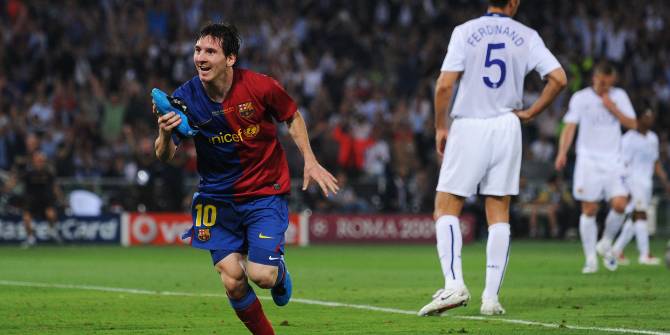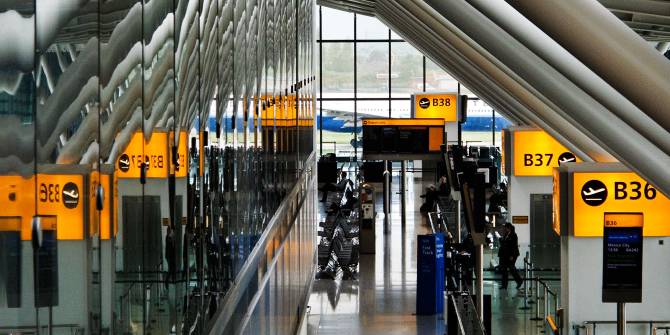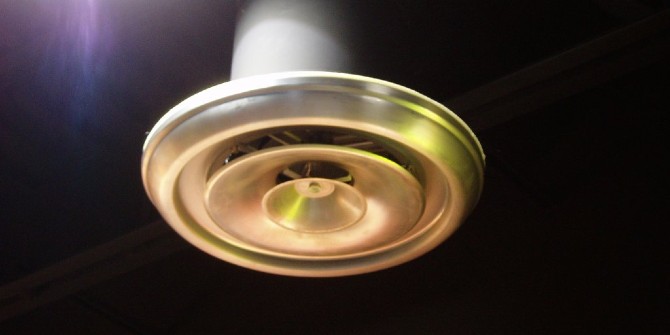The sports sector should pay its own way in the pandemic, argues Tsjalle van der Burg (University of Twente), by levying a tax on top players’ salaries once the worst of the crisis is over.
Sport has been hit hard by the pandemic. All over Europe, sports associations have been asking for government support. Amateur clubs in the Netherlands have already been granted 110 million euros to tide them over till July, when more money will be needed. Professional football will soon ask for sizable funding as well. But with so many calls on public funds, bailing out sport means less money will be available for education and other valuable causes. This is why a radical policy is called for.

This policy could be three-pronged. First, the authorities should help professional football reduce its costs. As I explained previously, this could be done by introducing special legislation that would allow the government to temporarily introduce price measures in the sectors hit by the virus. For football, it would mean a drastic cut in players’ salaries, with the best players giving up most (i.e. 75%) of their salaries. With these cost reductions, large clubs would no longer need government support.
Second, national governments should help amateur clubs and smaller professional clubs, with gifts and loans. Sport is important in social terms, and substantial government support is needed now.
The third prong of the policy would be for governments in Europe to jointly announce a progressive tax for professional football. The tax would be levied on the amount spent by clubs on player salaries. If by 2021 fans are allowed back in the stadiums again, the tax could be gently introduced in 2023 and finalised in 2025. The first two million euros paid by a club to players would then be exempt from tax. On the next four million, taxes would be 10 percent, 20 percent on the next six million, and so on. The richest clubs would be paying 90 percent tax on the salaries of the highest-paid players, bringing in several billion every year for European governments.
The tax will result in the (net) salaries of players going down, which will keep clubs from going bankrupt. With the richest clubs paying the highest taxes, it will be more difficult for them to poach players from the smaller clubs. Matches will become more exciting to watch (see also Van der Burg & Prinz, 2005).
Some additional explanation may be helpful here. In professional football there is something called economic rent. Economic rent means that the sector’s earnings exceed the amount necessary to make its product. Should, for instance, earnings in professional football fall by about 50 percent compared to 2019, they would be at the level of 2006. Ronaldinho’s FC Barcelona, which won the Champions League that year, proved that even at that level they were capable of making a good product. According to standard economic theory, welfare thrives with the introduction of comparatively high taxes in economic rent sectors. Taxes will not adversely affect production there, because those sectors do just as well with less money. The additional tax revenue could then be put to good use, such as tax cuts in the many sectors where production does suffer from them. Or the government could use the money in other ways. I suggest using it to finance the help given to sports during the coronavirus crisis (with a delay of some years).
American team sports have economic rent as well. So a future progressive tax for all major league teams (with suitable rates) could improve competitive balance and finance the aid currently needed by lower-level clubs in the US. Note that the current ‘luxury tax’ for the large teams in major league Baseball is not really a tax, as the proceeds do not go to the government but to the other major league clubs.
At some point in the future the total revenue of the taxes paid by professional football will be equal to the support currently granted to the entire sports sector. And that is when the progressive tax can be converted into a progressive social levy. Every professional club would be free to spend the proceeds on social projects of their choice, like helping local amateur clubs or combating racism.
This approach would take football back to its social, and typically European, roots. Volunteers have made football to what it is today, starting in 1857 when William Prest and Nathaniel Creswick founded the first football club, Sheffield FC.
This post represents the views of the author and not those of the COVID-19 blog, nor LSE.





